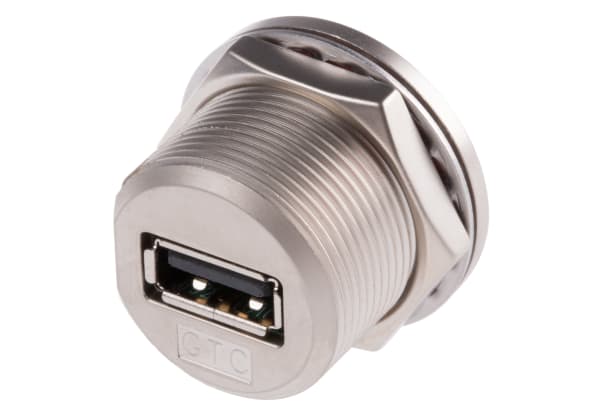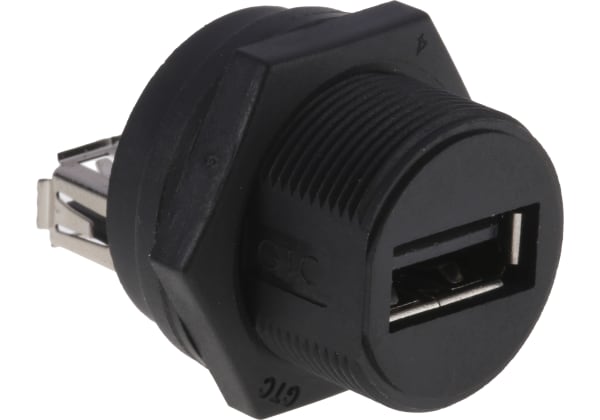- Published 13 Sept 2024
- Last Modified 13 Sept 2024
- 6 min
Why are Cigarette Lighter Sockets Still in Cars?
With smoking on the decline, why do new cars still have cigarette lighter sockets? Learn here about the feature’s history, current uses, and alternatives.
You’d be hard-pressed to find new automobiles with ashtrays, so why do cars still have cigarette lighters (sockets for them, that is)? That socket is versatile, powering devices consumers enjoy using in their cars, meaning it’s survived despite smoking’s popularity diminishing.
This guide will explain car cigarette lighter history, how the feature works, devices that use it, and how to convert a car cigarette lighter to USB.
History of Cigarette Lighter Sockets
Electric cigarette lighters were first patented in the 1880s, but they wouldn’t appear in cars until the 1920s. Cars didn’t even have batteries at first, relying on magnetos for their sparks (as with pull-start lawn mowers). As their electrical systems developed, so did ways to tap into them. By the 1950s, cigarette lighters and the sockets we know today were a standard feature.
Companies soon figured out that other devices could receive power from this socket, and so many of these products emerged to make automobile travel more convenient.
When did they stop putting cigarette lighters in cars? The sockets remain, but dedicated devices for lighting actual cigarettes started disappearing from new cars in the late 1990s and were gone by the early 2000s. Smoking was declining and less acceptable, and fire safety was a concern.
How Cigarette Lighter Sockets Work
How does a cigarette lighter plug work? It supplies charge at the positive contact point at its centre and has multiple negative contact points in its cylinder. The negative points (which ground to the vehicle frame) are spring-loaded, allowing a wide tolerance of plug dimensions. This makes it easy to manufacture accessories for, though they can sometimes lose contact and power.
These sockets’ actual cigarette lighters sent this 12V DC power through an uninsulated, coiled metal strip that quickly heated up from the current. Upon removing the plug, the literal red-hot strip could light cigarettes.
Can I use a cigarette lighter as a power outlet? Yes, for any devices using the male cylindrical 12V plugs. They should meet the industry standard of SAE J563_199003. Since the DC voltage can still vary despite the alternator’s best efforts, these devices must handle a voltage from 9 to 14V.
Does a cigarette lighter drain a car battery? Absolutely, especially for devices like compressors. If you’re going to use this socket without the car running, keep the duration brief and promptly let the car run for a while afterwards for the battery’s sake.
Cigarette Lighter Sockets Today
Are cigarette lighter sockets still used today? Yes, they’ve proven an enduring feature!
Why Are They Still Around?
Since smoking has declined so much and cars are way past the days of giving every passenger a personal ashtray in their door, why do cars still have cigarette lighters sockets? This is a feature that’s remained popular simply because it’s already popular. Once car cigarette lighters were commonly used, manufacturers released other accessories for their sockets, and they sold. The socket became expected so people could keep using those devices they’d invested in, and so the feature remained in car designs even as smoking’s day diminished.
And through all that time, the socket’s design was easy and convenient to use — perhaps even easier to find and connect to during a cramped, high-stress trip than fumbling with a small, concealed, asymmetric USB-A port!
Devices Using Cigarette Lighter Sockets
Does a car cigarette lighter work as a power outlet for any modern devices? Yes, plenty of consumer electronic devices can still plug into cigarette lighter sockets:
- USB adaptors for charging phones, tablets, and laptops
- Bluetooth radio transmitters for cars that otherwise lack Bluetooth connectivity
- GPS navigation devices
- Air compressors for emergency top-ups of tyres
- Dash cameras
- Air fresheners
- Food coolers or heaters
What you might have the most trouble connecting, in fact, are cigarette lighters! Most of these sockets are more correctly called ‘accessory sockets,’ and they use separate industry standard measurements than true cigarette lighter sockets do. If you try to insert an actual cigarette lighter into a modern accessory socket, it may fail to light and its heat could even damage the socket. Review the lighter’s specifications, if you can, to be sure of what you’re working with.
Replacements to Cigarette Lighter Sockets
What if you don’t want to be stuck using devices with plugs for cigarette lighter sockets? Thankfully, you have several options at your disposal.
Adaptors for Cigarette Lighter Sockets
If your car’s only accessory socket is a cigarette lighter one, you can still charge devices with other plugs.
Adaptors exist for:
- USB-A
- USB-C
- 110V AC (North American wall sockets): These units are also inverters to handle the DC conversion.
Just don’t expect to exchange any digital data using this socket! They also may not supply the current you expect from wall sockets.
Alternate Plugs Found in Cars
Do all cars have cigarette lighter sockets today? No, not 100% of them, but plenty still do. While the prevalence of accessories that fit in 12V accessory sockets has given this socket a long life, even more prevalent in our lives are USB connectors. The phones, tablets, headphones, smartwatches, etc. we constantly use mostly have charging cables adapting to USB-A connectors — and even those are being overtaken by the superior USB-C.
And charging isn’t enough anymore! We expect accessory plugs to be able to exchange data with the car for things like playing music or podcasts.
As such, cars increasingly sport USB-A and USB-C ports; often more than one. This gives us constant connectivity and device synchronicity.
Some North American vehicles even come with standard 110V sockets of the type you see in building wall sockets. This lets you use even more devices on the go, which can be useful for camping or field work. British 230V sockets cannot comparably be found in vehicles, though.
With all of these, always be careful not to drain your vehicle’s battery. Any convenience of using your other devices takes a backseat to you reaching your destination safely.
RS carries car chargers that fit cigarette lighter sockets as well as the complete sockets themselves andautomotive electrical connectors. Browse these for all your travel accessory charging needs.
Related Articles
Related links
- Cigarette Lighter Sockets
- Pro Car Cable Mount, 16A Cigarette Lighter Socket
- Pro Car Surface Mount, 16A Cigarette Lighter Socket
- Pro Car Cable Mount, 8A Cigarette Lighter Socket
- RS PRO Panel Mount Cigarette Lighter Socket
- RS PRO, 8A Cigarette Lighter Socket
- RS PRO Panel Mount, 15A Cigarette Lighter Socket
- Legrand, 2.1A Cigarette Lighter Socket



